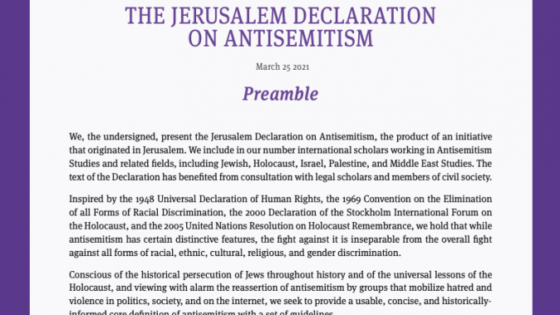Over half of Canada’s universities fail to adequately protect free speech and the Arab-Israeli conflict looms large over these failures, a study released Tuesday claims.
The Calgary-based Justice Centre for Constitutional Freedoms graded 45 schools in its 2013 Campus Freedom Index, and 23 of the schools received at least one failing grade. The study evaluated and assigned two letter grades, A-F, to the administration and student union of each university, one based on their policies and the other on their practices.
Instances of censorship relating to Israel, such as Israel Apartheid Week and the Boycott, Divestment and Sanctions campaign, were reported at 12 of the universities and were detrimental to their grades in a number of circumstances.
McGill University received an F, tying it with seven schools for second worst in the country. In 2012, the Students’ Society of McGill University told the student group McGill Friends of Israel that they had to change the name of their Israel A-Party event because executives felt it made “a mockery and/or trivialization of various oppressions some people of the world are subject to on a day-to-day basis.” The event was designed to be a counter to Israel Apartheid Week, an annual nationwide event that seeks to promote labeling Israel as apartheid.
Co-author of the study Michael Kennedy said that it was a particularly glaring transgression, considering the university permitted Israel Apartheid week events to take place without protest, according to The Gazette, a Montreal-based newspaper.
“They should have allowed it,” he said. “It was very micro-managing to allow one and not the other.”
He added that free speech is in danger at universities across the country.
“You have universities that cancel events organized by student groups because the ideas they’re discussing are too controversial, and you have student unions who deny certification to student groups based on their views as well.”
President of McGill’s Post-Graduate Students’ Society Jonathan Mooney, however, said that these decisions are not so simple because students have differing opinions on how far universities should go in protecting free speech.
“It is challenging to strike a balance,” he told the Gazette. “The difficulty is that deciding what is unacceptable can be a subjective exercise, while acting to restrict speech merely because it is offensive to one individual could shut down the free exchange of ideas in a university setting.”
Also tied for second worst was the University of Manitoba Student Union Council, due in part a decision on April 11 of this year to pass a resolution remove official student group status from Students Against Israeli Apartheid, and to ban the club from UMSU spaces, because the group’s annual Israeli Apartheid Week event discriminates against “Zionists.”
Other schools that received failing grades over issues relating to Israel included Wilfrid Laurier University, Guelph University, University of Ottawa and University of York.
However, the study also lauded several universities for protecting free speech in their handling of Israel-related controversies.
In May 2009, former Israeli political advisor Dr. Josef Olmert was scheduled to speak at an event, and in anticipation of hecklers, the university warned students that students that interrupted Olmert in an inappropriate manner would face disciplinary actions by the university.
“STU’s pre-emptive action to ensure Olmert’s lecture could proceed without incident is testament to the school’s commitment to free speech,” the report stated.
The University of Regina was one of three universities to earn an A for protecting free speech. In 2011, the university partnered with the City of Regina for a lecture series called Profs in the Park and the university rejected demands that one of its professors change the topic of her speech, entitled ‘Solidarity with Palestine: The case for Boycotts, Divestment and Sanctions against Israel.’
“The University … defended the right of professors and citizens to express unpopular views,” the study said.
The University of Toronto and Ryerson University also were praised in the report for promoting open discussion and exchange of views by withstanding pressure from Jewish groups to cancel events with controversial speakers.


